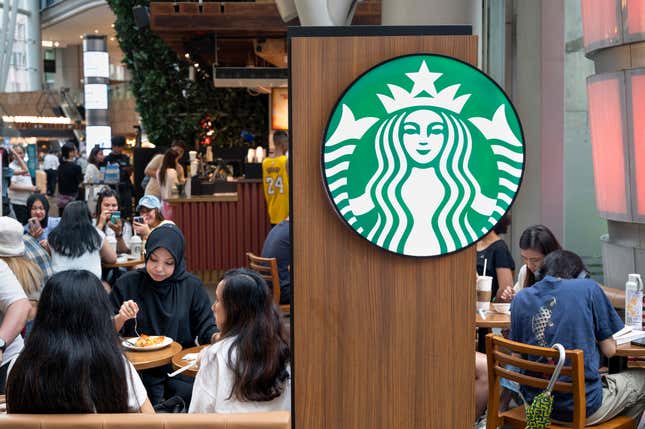
In This Story
Starbucks was forced to chill out on marketing its boba-like “popping pearls” drink because supply got so low.
Demand for the icy drinks “was significantly ahead of what we thought it would be to the point where we ran out of supply,” Starbucks CEO Laxman Narasimhan told investors on Tuesday during the company’s second quarter earnings call.
“I think it wasn’t a supply issue necessarily, but it was more the demand was ahead of what we thought it would be,” he added. “We had to pull back marketing and my sense is that as you look at what we now have in our stores, they’re back in stores with new products and it’s a platform that we’ll continue to build over time.”
The coffee giant officially launched the three-drink lineup in May to offer customers more options beyond its traditional coffee staples. The trio of flavors include Summer Berry, Summer Berry with Lemonade, and Summer Skies Drink. Cold drinks make-up about 76% of the chain’s current sales, Narasimhan said.
The popularity of Starbucks’ “Pearls,” could be closely tied to bubble tea, commonly known as Boba. The cold Taiwanese drink, made with tea, milk, fruit, and soft tapioca balls, has become increasingly popular among U.S. consumers, especially Gen Z (those between 12-27 years old) and Gen A (those born between 2010 and now).
“Pearls” could be sticking around. Narasimhan said that the beverages drove the highest first week product launch in the company’s history. Their success buoyed the entire Starbucks Refreshers beverage platform to an all-time high during the quarter.
The success of Pearls comes at the same time that the coffee giant reported a slip in third-quarter sales, which it blamed was due declining demand from U.S. and Chinese consumers.